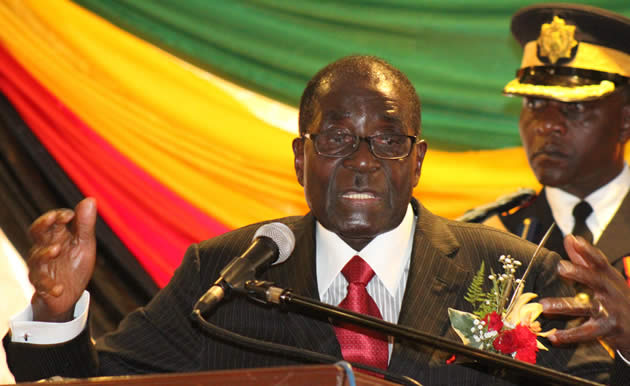Editorial Comment: NRZ needs substantive manager urgently

 The National Railways of Zimbabwe (NRZ) is one of the most strategic institutions in our economy.
The National Railways of Zimbabwe (NRZ) is one of the most strategic institutions in our economy.
It moves the bulk cargo that the economy needs to work. But when there was no freight to move as in the past decade of economic downturn, the bulk transporter ran off the rails. Ziscosteel, the NRZ’s principal customer collapsed a few years ago, meaning that business from the steel giant completely dried up. Another of the freighter’s strategic clients, Hwange Colliery Company, is having its own viability challenges, so there is limited coal to move from there. Many companies that gave NRZ business have shut down, others are operating at around 40 percent capacity, therefore, there isn’t much cargo for the NRZ to move from them.
Apart from a drying up of much of its lifeline bulk freight business, the NRZ has internal challenges of its own, among them unserviceable and aged equipment, locomotives and wagons; a railway line that is littered with cautions, the road equivalent of potholes that slow down trains and an erratically paid, thus demoralised workforce.
Because of low business and the NRZ’s challenged internal systems, the parastatal is operating at below 55 percent capacity.
To get NRZ back on the rails, a lot of money is needed, about $1,9 billion for long term sustainability and $460 million for the short to medium term.
In parliament yesterday, Transport and Infrastructure Development Minister Dr Obert Mpofu made an announcement that must cheer the economy up and the NRZ’s long-suffering workforce. He said government is concluding negotiations with a South African financial institution for a $460 million loan to recapitalise the parastatal.
“The parastatal is currently operating at less than 55 percent capacity hence is facing serious cash flow challenges,” he said of the general context the NRZ is in.
Now for the good news, “It is against this background that government is currently engaged in negotiations with a South African- based financial institution for a $460 million loan facility which is required for the NRZ recapitalisation. We are targeting to complete the negotiations in this quarter and we are confident that we will secure the required funding.”
The deal has not been sealed yet, but we have every reason to believe that a minister of Dr Mpofu’s experience will not make an idle statement, in parliament. We are confident that the fact that he said this in the august House, means that there is genuine hope that the loan would be availed.
The financial injection should revive the NRZ. It is around the sum of money its managers have consistently said was needed in the short to medium term to revive the parastatal.
When, not if, it is disbursed, the loan comes shortly after government appointed a board, chaired by former NRZ general manager, Engineer Alvord Mabena, to steer the rail utility forward. It is a very good start for Eng Mabena, whose appointment inspires confidence considering his long and relevant experience with the transporter.
But we hope that the actual disbursement of the money would be made after a substantive general manager is appointed to succeed Retired Air Commodore Mike Karakadzai who died in August last year. It could be one of the conditions of the loan that NRZ should have a substantive management structure in place first before the money is released.
Therefore, we expect a new boss soon to manage the diligent use of the loan for the parastatal to come back to viability and reassure the financial institution.
While we are happy with the prospects at NRZ, it is clear that for the loan and a new management structure there to make a difference, the economy has to recover. When that happens, the NRZ would have cargo to move. At the weekend, President Mugabe assured the nation that the economy is on the road to sustainable recovery, so everyone is hopeful that the negotiations that government is involved in with its partners for a possible rescue package would soon materialise.
We have to thank the South African financier in advance. That market, together with China, has shown a willingness to help in our economic recovery efforts despite the negativity in Europe and America. Already, a South African bank, the Development Bank of Southern Africa, is involved in another huge infrastructural project, the Plumtree-Bulawayo-Gweru-Harare-Mutare highway. There are many other investors from down south and China who are involved in other projects elsewhere.
South African involvement is very important and we really appreciate it. The sentiment in that market as it relates to Zimbabwe is positive. We thank the South African bank. A British or American bank would not even begin to discuss with our government the possibility of a loan, not to mention one of this magnitude.












Comments